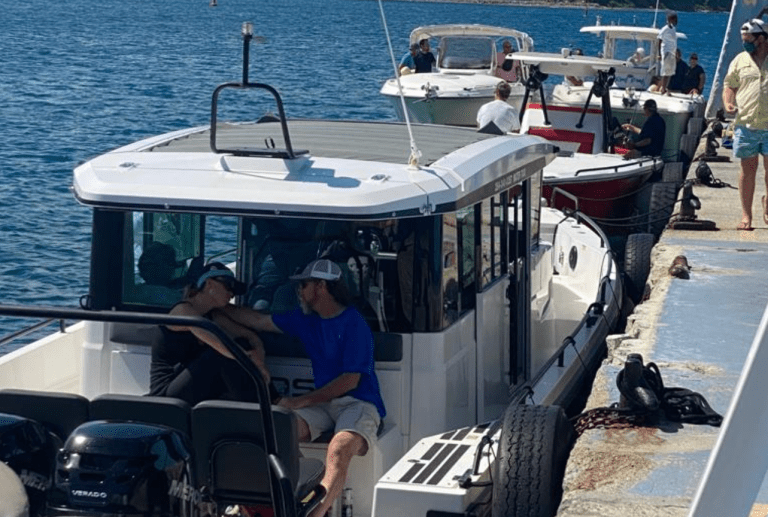
Charter vessel seized after being operated without license or permits
Speaking during an interview with ZBVI radio, Smith said Customs officers met last week with a number of charter companies and there was one in particular that they instructed could not conduct charters because it did not meet the requirements of the Virgin Islands Shipping Registry.
This was in addition to the vessel not having a commercial vessel license, a trade license, or cruising permits.
“That vessel continued and was engaged in the trade, engaged in the charter. They conducted their charter and during a patrol by the Customs Department, that vessel was identified, questioned and the captain and the crew instructed the guests to make a statement to the Customs officials—telling them that they were friends of the captain to avoid paying cruising permit taxes but there was a charter that was paid for and they were penalised,” Smith explained.
Smith, while declining to state the monetary figure or the name of the vessel, said the fine was paid and the vessel was released.
West End charter boats denied clearance to leave
Meanwhile, the Customs boss said there were also a number of water taxis, which are essentially charter boats, attempting to leave the territory with guests over the weekend though they did not meet the necessary requirements.
He disclosed that there were approximately eight vessels that were leaving from the West End area, but these were all denied clearance by HM Customs.
Smith said passengers on the vessels were being ferried to and from the United States Virgin Islands (USVI).
Other water taxis which met the requirements, Smith said, were able to take those passengers out of the BVI into the USVI.
 Water taxis that were stopped at the weekend.
Water taxis that were stopped at the weekend.
Safety a priority
Smith said it has been established through various fora that safety is the number one priority and water taxis first have to meet the safety requirements as established by the laws that are governing the Virgin Islands Shipping Registry.
He said the offending vessels were not issued commercial recreation vessel licenses by the Customs Department, hence they could not engage in that particular trade.
Owners first need to make an application to the Virgin Islands Shipping Registry with the requisite documentation in order to be certified. After this, they have to make an application to the customer service department for a commercial recreation vessel license.
These weren’t done to date in this instance with these specific vessels, Smith said.
Smith said the captains were not charged at that time, but were given a stern warning and told they may be penalised if it happens again.










